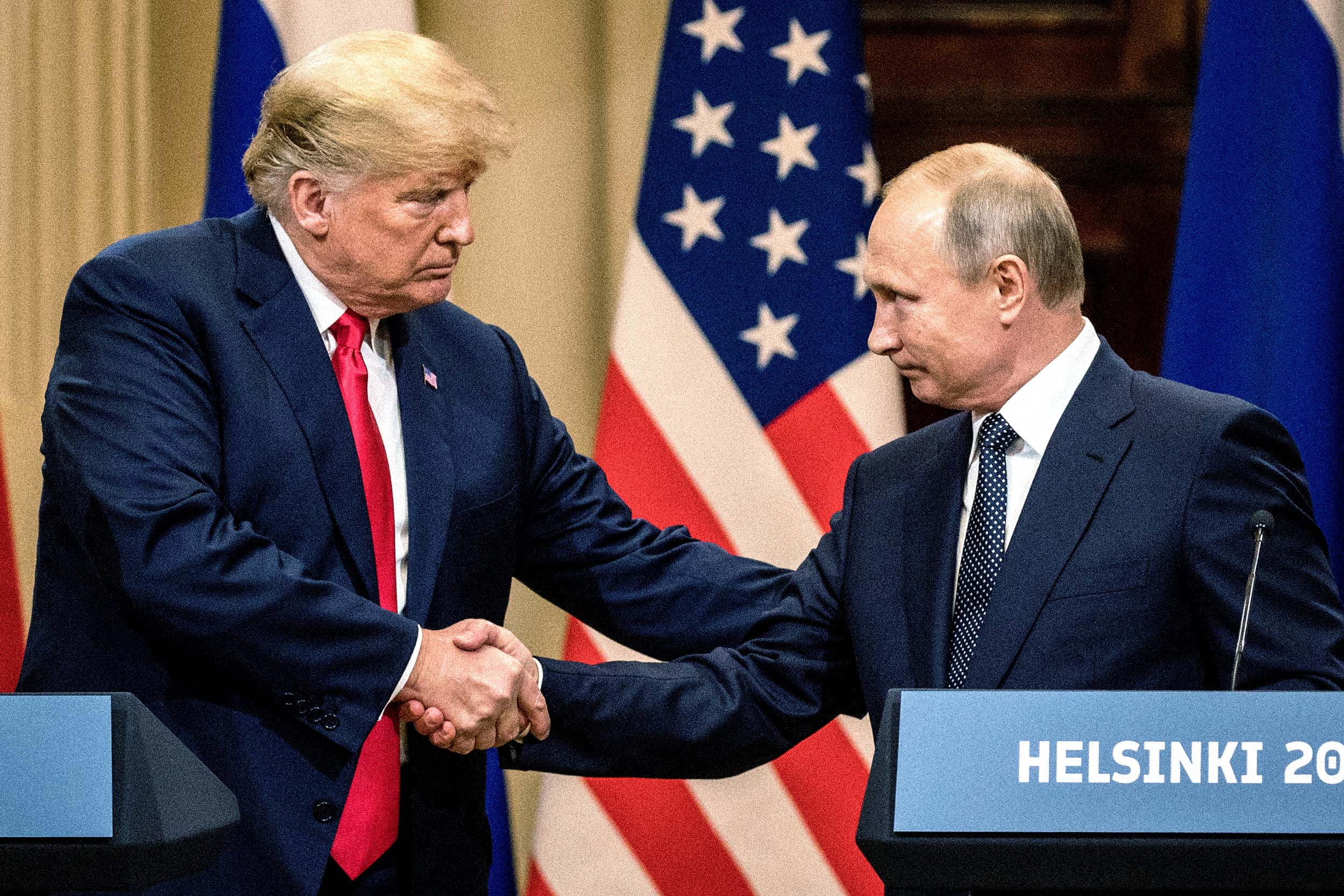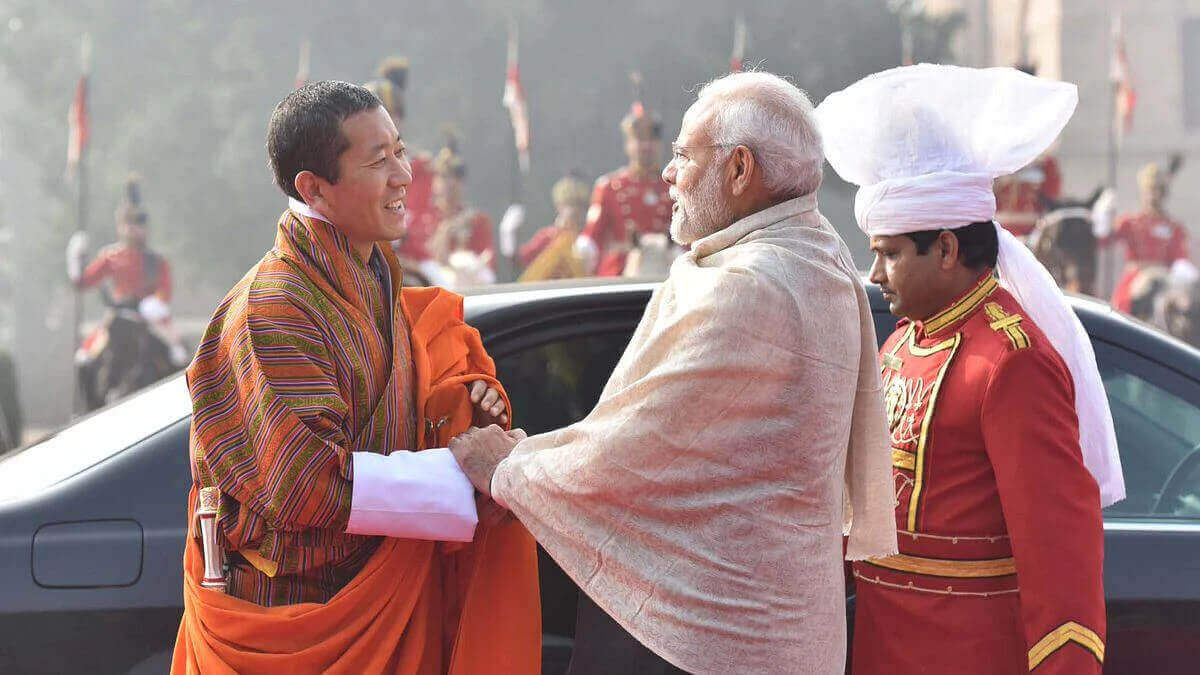South Asia
Bhutanese Prime Minister Lotay Tshering expressed gratitude to his Indian counterpart Narendra Modi for sharing COVID-19 vaccines, which have allowed Bhutan to vaccinate 90% of its population. The comments were made at the 5th conference of BIMSTEC (The Bay of Bengal Initiative for Multi-Sectoral Technical and Economic Cooperation), which comprises Bangladesh, Bhutan, India, Myanmar, Nepal, and Thailand. [Hindustan Times]
British Foreign Secretary Liz Truss is set to begin her visit to India today, during which she intends on discussing the Russia-Ukraine conflict with Indian External Affairs Minister S. Jaishankar. The meeting forms part of the United Kingdom’s “wider diplomatic push” to convince countries to take a stronger stand against Russia on the issue. [Indian Express]
Central Asia and the Caucasus
The European Union on Wednesday hosted a meeting of Armenian and Azerbaijani officials in Brussels aimed at resolving the ongoing tensions in Nagorno-Karabakh, where Azerbaijani troops have breached the line of contact established after the 2020 war. It was also announced during the meeting that European Council President Charles Michel, Azerbaijani President Ilham Aliyev, and Armenian Prime Minister Nikol Pashinyan will meet in Brussels on April 6. [Public Radio of Armenia]
The Georgian region of South Ossetia, which has been under Russian occupation since 2008, announced that it will take legal steps to join Russia in the near future, a move that could spark a fresh conflict between Moscow and the West. The breakaway region’s president, Anatoly Bibilov, said that “unification with Russia is our strategic goal,” asserting that South Ossetia has always been part of Russia’s “historic homeland.” [Armen Press]
East and Southeast Asia
South Korea’s defence ministry said that it has concluded along with Washington that North Korea faked the launch of the Hwasong-17 missile last Friday, a long-range ICBM that analysts were calling its “monster missile” and largest-ever launch. They found that the missile tested was the same intercontinental ballistic missile Pyongyang fired back in 2017. [The Straits Times]
Indonesian Foreign Minister Retno Marsudi has warned that the ongoing conflict in Ukraine has served as a “reminder” for Indo-Pacific countries to better manage potential regional conflicts. “The current situation in Ukraine serves as a reminder for all of us to more carefully manage the Indo-Pacific region,” she said, adding that all nations must uphold international law in order to keep the region peaceful and stable. “Respect for international law, including respect for sovereignty and territorial integrity, must be carried out consistently and not [applied in a] pick-and-choose [manner].” [The Jakarta Post]
Europe
British Foreign Secretary Liz Truss announced that the judges from the United Kingdom would no longer sit in Hong Kong’s top court amid “a systemic erosion of liberty and democracy” in the country. Two judges who were in overseas non-permanent positions in the court resigned from their position immediately following the announcement. [Al Jazeera]
On Wednesday, German Chancellor Olaf Scholz said Russia assured his government that Europe would not have to pay for gas imports in the rubles and that companies could continue paying in euros or dollars. Last week, Russian President Vladimir Putin demanded payment from “unfriendly countries” for Russian gas imports in rubles. The G7 countries rejected Putin’s demand, citing a breach of existing contracts. [DW]
Hungary on Wednesday accused Ukraine of meddling in its upcoming election on April 3. Though he did not provide evidence of his claims, Foreign Minister Péter Szijjártó alleged that there is “ongoing coordination” between Hungary’s opposition and the Ukrainian government, though Kyiv has denied these charges. Szijjártó’s accusation comes after Ukrainian President Volodymyr Zelensky’s recent criticism of his Hungarian counterpart Viktor Orbán’s weak support for Ukraine. Moreover, Szijjártó himself has been accused by the opposition of providing Russia's secret service with “practically unlimited access” to Budapest’s Information Technology (IT) infrastructure over the years. [Associated Press]
Latin America and the Caribbean
Two unnamed United States (US) government officials have said that, in May, the Biden administration plans to remove the Title 42 health restriction in place since March 2020 under the Trump administration that has been used to heavily restrict migrant crossings along the US-Mexico border. Enacted as a means to control the spread of COVID-19, the policy has prevented over 1.7 million people from crossing the southern border. [NBC News]
The United Nations and the Catholic Church estimate that at least 130 people have been killed and a further 3,000 have been forcibly displaced in eastern Colombia since the start of the new year. This has been attributed to fighting between the National Liberation Army (ELN), the biggest leftist guerrilla group in Colombia, and 'dissident factions' of the Revolutionary Armed Forces of Colombia (FARC), which are fighting for control of highly profitable drug smuggling routes to the United States and Europe. [CNN]

Middle East and North Africa (MENA)
The International Monetary Fund (IMF) said on Wednesday that “climate change is inflicting crippling losses” in the Middle East and Central Asian regions, with poor and conflict-ridden states being affected the most by rising temperatures. It also notes that climate-related disasters in the region reduce annual economic growth by one to two percentage points on a per capita basis. “In any given year since 2000, climate disasters have killed more than 2,600 people, affected 7 million others, and caused $2 billion in direct material damage.” [International Monetary Fund]
The United States (US) on Wednesday imposed sanctions on Iran’s ballistic missile programme following recent ballistic missile strikes by the Islamic Revolutionary Guard Corps (IRGC) in Erbil, Iraq near a US consulate and over Tehran’s use of proxies to attack Saudi Arabia and the United Arab Emirates. The State Department said that it is sanctioning five Iranians and four Iranian defence companies affiliated with the IRGC for being involved in Iran’s ballistic missile programme. [US Department of State]
North America
On Wednesday, former United States President Donald Trump rejected claims that he had called Russian President Vladimir Putin a “genius” over Russia’s invasion of Ukraine, dismissing it as “fake news.” In a statement, Trump said he called Putin’s troop build-up along the Ukrainian border a “genius” strategy that he believed would give the Russian leader an upper hand during negotiations. [Yahoo News]
Canada’s former Chief of Defence Staff, retired general Jonathan Vance, pleaded guilty to obstructing investigations related to last year’s sexual misconduct crisis that prompted a massive structural overhaul of the Canadian military. During a virtual hearing on Wednesday, the court sentenced Vance to a conditional discharge along with 12 months of probation. A total of 11 high ranking officials of the Canadian army have been sidelined or dismissed over their handling of the cases. [CBC]
Oceania
On Thursday, Australia’s Ambassador to China, Graham Fletcher, was denied entry to the trial of Australian journalist Cheng Lei. The journalist worked for China’s state media CGTN and was detained without trial for 19 months over charges of supplying state secrets. Fletcher said, “We have no confidence in the validity of a process which is conducted in secret.” In turn, Canberra called Beijing’s this move “deeply concerning.” [The Sydney Morning Herald]
A senior Australian government official condemned Russian President Vladimir Putin’s invasion of Ukraine during a G20 event amid calls for Moscow’s expulsion from this year’s summit in November. A spokesperson for the Australian government said, “We continue to work closely with Indonesia and other G20 members on the question of Russia’s participation in the forum.” [The Sydney Morning Herald]
Sub-Saharan Africa
Residents of the Senegalese capital Dakar have complained about the closure of the country’s border with Mali, saying the policy has increased food prices with less than ten days until Ramadan. In January, Senegal joined the Economic Community of West African States and the West African Economic and Monetary Union in enacting a number of new sanctions against the Malian junta for failing to hold elections, including border closures. Residents, however, have said that apart from Malian goods, products from Guinea and the Ivory Coast also pass through Mali, leading to a decrease in supply and subsequent price increases; this phenomenon has also been observed in other West African economies such as Nigeria, the Gambia, Guinea, and Burkina Faso. [Africanews]
In an interview with The New Times, outgoing Chinese Ambassador to Rwanda Rao Hongwei celebrated the projects the two countries have initiated over the last few years, such as the road expansion project from Gahanna to Bugesera; in fact, roughly 70% of asphalt road construction projects in the country are overseen by Chinese companies. China is Rwanda’s largest trading partner, with their trade volume reaching $300 million in 2021. [The New Times]

